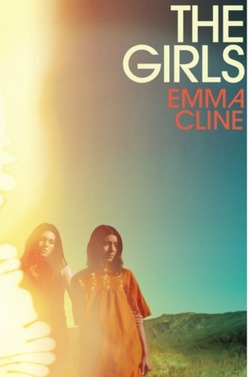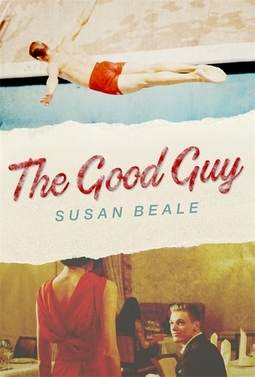“Asshole,” she muttered, but she wasn’t really mad. That was part of being a girl – you were resigned to whatever feedback you’d get. If you got mad, you were crazy, and if you didn’t react, you were a bitch. The only thing you could do was smile from the corner they’d backed you into. Implicate yourself in the joke even if the joke was always on you.
So when she sees a group of older girls with long uncombed hair and dirty dresses laughing as if they don’t give a damn, she wants to be with them, especially Suzanne. But just as she’s in thrall to Suzanne, Suzanne is in thrall to Russell, hippy guru and strangely charismatic leader of the ranch, a scruffy commune deep in the hills. Evie spends more and more time there, doing drink and drugs, and staying out overnight while her mother thinks she’s at Connie’s. Free love leads to free sex and, if any of the young adults realise she’s only fourteen, they’re unlikely to care, given that their own infants are left largely unclothed and unsupervised, their pale skin burning in the sun. While her position on the boundary might enable Evie to recognise that all is not right at the ranch, her desperation to belong, to be noticed by Suzanne, lets her turn a blind eye to her scruples. When things turn nasty, is she as guilty as the rest of them?
I feared I’d come to this too soon after Hope Farm, another novel about the hypocrisy underlying the hippy lifestyle, but The Girls is sufficiently different. Loosely based on the Charles Manson murders, this disturbing novel asks how far a woman’s blind obsession and anger at her oppression might take her. In their horrific violence, do Russell’s acolytes enact his own narcissistic fantasies of revenge and/or do they project their rage at his capacity to control them onto whoever happens to get in their way? And might we, in similar circumstances, give vent to our own fury at the large and small ways in which women are used and abused?
############################################################
Ted and Abigail live with their baby daughter, Mindy, in suburban New England. After finding his niche in a surprisingly successful summer job, Ted left college to work as a tyre salesman and, with a house move, the more intellectual Abigail left with him. Now she stays at home, despairing at her inability to connect with her neighbours, or to find fulfilment in housework and childcare. Even as she laps up non-fiction at every spare moment, and thrives on intense conversations with her lawyer father, she doesn’t question her subordinate position, such as at an evening class (p110):
Everyone was looking down, staring at their desks to avoid eye contact with the professor. Abigail was surprised that none of the men knew the answer to such an easy question. She stared at her hands folded in her lap. The continuing silence strained her nerves, especially when the professor resumed his manic foot-tapping. When she could bear it no longer, and it seemed certain that none of the men would answer, her hand shot into the air.
Ted, meanwhile, is baffled by her “crying jags” and her restrained recognition of his escalating career. With scenes shown from the point of view of both parties, their continual misunderstanding of the other’s motives seems destined to drive them apart. He takes refuge in the arms of Penny, and the strange allure of an almost-emancipated woman living in a flat share. He justifies their relationship in terms of their shared love of dancing and exotic dining and that, unlike his mentors in the workplace, he makes no promises he cannot keep. But, in deceiving both his wife and lover, can he continue to see himself as the good guy? Will he face up to his responsibilities before things go too far? In Ted, this is also the portrait of a fantasist who (much like the cliche of the modern woman) thinks he can have it all.
In a couple of my debut novelist Q&A’s (see Aria Beth Sloss and Emma Chapman), I’ve expressed curiosity at younger women’s interest in looking to the past to draw parallels with the contemporary lives of women. While significant gains have been made, many of the small markers of women’s inferior position in society go virtually unnoticed – or perhaps that’s just me! Congratulations to Emma Cline and Susan Beale for directing my gaze in this direction once more.























 RSS Feed
RSS Feed





















